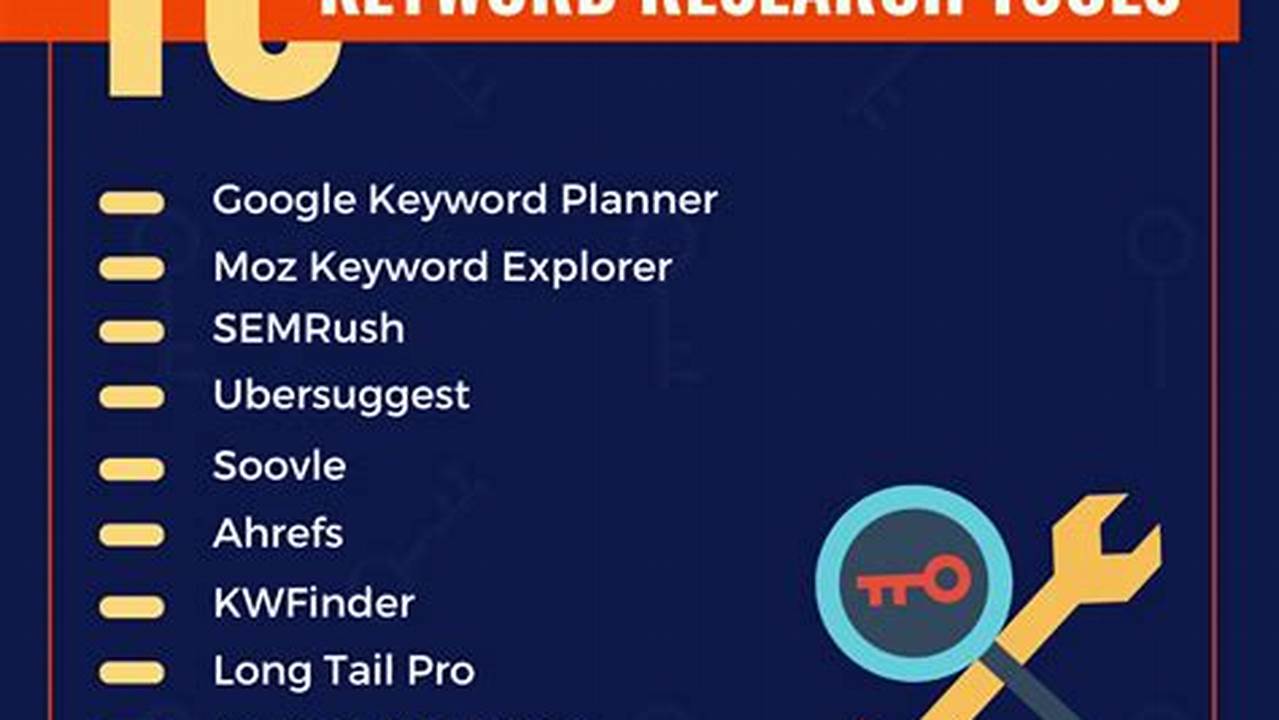Selecting the optimal instruments for keyword research is paramount for successful search engine optimization (SEO) in the contemporary digital landscape. Effective keyword identification and analysis inform content strategy, enabling websites to rank higher in search engine results pages (SERPs) and attract a larger, more relevant audience. Staying current with the latest tools and techniques is essential for maximizing online visibility and achieving business objectives.
Importance of Keyword Research
Thorough keyword research provides a foundation for content creation aligned with user search intent. This alignment increases the likelihood of attracting organic traffic and driving conversions.
Competitive Advantage
Understanding competitor keyword strategies offers valuable insights into market trends and allows for the identification of opportunities to outperform rivals.
Content Optimization
Strategically incorporating relevant keywords into website content improves search engine rankings and enhances content discoverability.
Enhanced User Experience
By understanding user search queries, websites can deliver content that accurately addresses user needs, leading to a more satisfying user experience.
Targeted Advertising Campaigns
Effective keyword research informs paid advertising campaigns, ensuring ads reach the intended audience and maximize return on investment.
Data-Driven Decision Making
Keyword research tools provide valuable data and analytics, enabling informed decisions about content strategy and marketing efforts.
Long-Tail Keyword Identification
Discovering long-tail keywords (longer, more specific phrases) allows websites to target niche audiences and capture highly qualified leads.
Improved Website Traffic
Higher search engine rankings resulting from effective keyword research translate to increased organic website traffic.
Increased Brand Visibility
Improved online visibility enhances brand awareness and establishes credibility within the target market.
Business Growth
By driving targeted traffic and increasing conversions, effective keyword research contributes significantly to overall business growth.
Tips for Effective Keyword Research
Focus on user intent: Understand the underlying needs and motivations behind search queries.
Analyze Competitor Strategies
Identify keywords used by competitors to uncover opportunities and gain market insights.
Utilize a Variety of Tools
Explore different keyword research tools to access comprehensive data and diverse perspectives.
Stay Updated on SEO Trends
The SEO landscape is constantly evolving. Staying informed about the latest trends ensures optimal keyword research practices.
How frequently should keyword research be conducted?
Regularly reviewing and updating keyword strategies, ideally quarterly or bi-annually, is recommended to adapt to changing search trends and maintain competitiveness.
What are the key metrics to consider in keyword research?
Important metrics include search volume, keyword difficulty, and relevance to target audience. Balancing these factors is crucial for effective keyword selection.
What is the difference between short-tail and long-tail keywords?
Short-tail keywords are shorter, more general terms, while long-tail keywords are longer, more specific phrases. Long-tail keywords often target niche audiences and have lower competition.
How can keyword research tools assist in content creation?
Keyword research tools provide valuable insights into user search queries, helping content creators develop targeted and relevant content that resonates with their audience.
In conclusion, leveraging robust keyword research methodologies and utilizing up-to-date tools is essential for achieving online success. By understanding user search behavior and strategically incorporating relevant keywords, websites can enhance their visibility, attract targeted traffic, and ultimately achieve their business objectives.

Leave a Reply